The number one rule when it comes to helping your anxious child is by respecting their feelings without empowering their fears. Take the help of the following 49 phrases to calm an anxious child you can manage their troubles.
It happens to every child in one form or another – anxiety. As parents, we would like to shield our children from life’s anxious moments, but navigating anxiety is an essential life skill that will serve them in the years to come.
In the heat of the moment, try these simple phrases to help your children identify, accept, and work through their anxious moments.
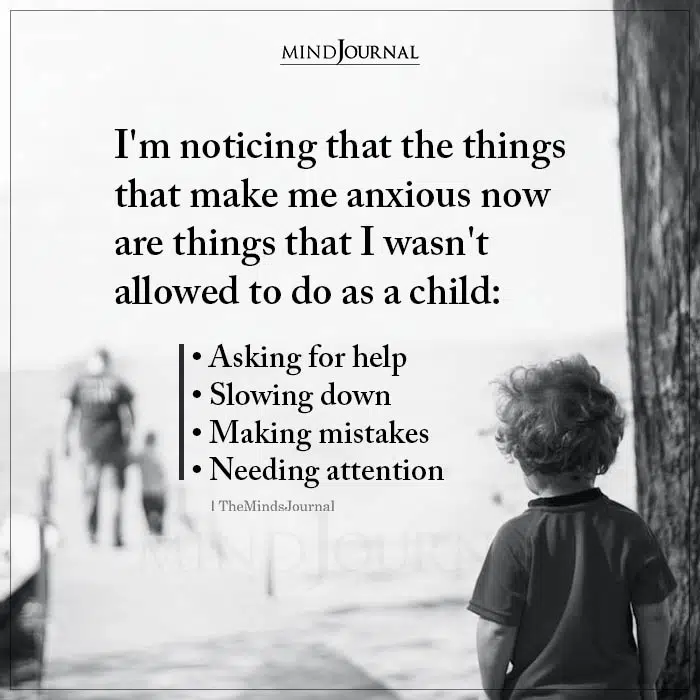
49 Phrases That Will Be Helping Your Anxious Child
1. “Can you draw it?”
Drawing, painting, or doodling about anxiety provides kids with an outlet for their feelings when they can’t use their words.
2. “I love you. You are safe.”
Being told that you will be kept safe by the person you love the most is a powerful affirmation. Remember, anxiety makes your children feel as if their minds and bodies are in danger. Repeating they are safe can soothe the nervous system.
Related: Permissive Parenting Style: Why It’s Bad For You and Your Child?
3. “Let’s pretend we’re blowing up a giant balloon. We’ll take a deep breath and blow it up to the count of 5.”
If you tell a child to take a deep breath in the middle of a panic attack, chances are you’ll hear, “I CAN’T!” Instead, make it a game. Pretend to blow up a balloon, making funny noises in the process.
Taking three deep breaths and blowing them out will actually reverse the stress response in the body and may even get you a few giggles in the process.
Related: Top 10 Worst Parenting Words You Should Never Use For Your Child
4. “I will say something and I want you to say it exactly as I do: ‘I can do this.’” Do this 10 times at variable volume.
Marathon runners use this trick all of the time to get past “the wall.”
5. “Why do you think that is?”
This is especially helpful for older kids who can better articulate the “Why” in what they are feeling.
6. “What will happen next?”
If your children are anxious about an event, help them think through the event and identify what will come after it. Anxiety causes myopic vision, which makes life after the event seem to disappear.
7. “We are an unstoppable team.”
Separation is a powerful anxiety trigger for young children. Reassure them that you will work together, even if they can’t see you.
8. Have a battle cry: “I am a warrior!”; “I am unstoppable!”; or “Look out World, here I come!”
There is a reason why movies show people yelling before they go into battle. The physical act of yelling replaces fear with endorphins. It can also be fun.
9. “If how you feel was a monster, what would it look like?”
Giving anxiety a characterization means you take a confusing feeling and make it concrete and palpable. Once kids have a worry character, they can talk to their worry.
10. “I can’t wait until _____.”
Excitement about a future moment is contagious.
11. “Let’s put your worry on the shelf while we _____ (listen to your favorite song, run around the block, read this story). Then we’ll pick it back up again.”
Those who are anxiety-prone often feel as though they have to carry their anxiety until whatever they are anxious about is over. This is especially difficult when your children are anxious about something they cannot change in the future. Setting it aside to do something fun can help put their worries into perspective.
12. “This feeling will go away. Let’s get comfortable until it does.”
The act of getting comfortable calms the mind as well as the body. Weightier blankets have even been shown to reduce anxiety by increasing mild physical stimuli.
Related video about parenting an anxious child:
13. “Let’s learn more about it.”
Let your children explore their fears by asking as many questions as they need. After all, knowledge is power.
14. “Let’s count _____.”
This distraction technique requires no advance preparation. Counting the number of people wearing boots, the number of watches, the number of kids, or the number of hats in the room requires observation and thought, both of which detract from the anxiety your child is feeling.
15. “I need you to tell me when 2 minutes have gone by.”
Time is a powerful tool when children are anxious. By watching a clock or a watch for movement, a child has a focus point other than what is happening.
16. “Close your eyes. Picture this…”
Visualization is a powerful technique used to ease pain and anxiety. Guide your child through imagining a safe, warm, happy place where they feel comfortable. If they are listening intently, the physical symptoms of anxiety will dissipate.
17. “I get scared/nervous/anxious sometimes too. It’s no fun.”
Empathy wins in many, many situations. It may even strike up a conversation with your older child about how you overcame anxiety.
18. “Let’s pull out our calm-down checklist.”
Anxiety can hijack the logical brain; carry a checklist with coping skills your child has practiced. When the need presents itself, operate off of this checklist.
Related: The Dangers of Distracted Parenting: Why Parents Need To Put Down Their Phones
19. “You are not alone in how you feel.”
Pointing out all of the people who may share their fears and anxieties helps your child understand that overcoming anxiety is universal.
20. “Tell me the worst thing that could possibly happen.”
Once you’ve imagined the worst possible outcome of the worry, talk about the likelihood of that worst possible situation happening. Next, ask your child about the best possible outcome. Finally, ask them about the most likely outcome. The goal of this exercise is to help a child think more accurately during their anxious experience.
21. “Worrying is helpful, sometimes.”
This seems completely counter-intuitive to tell a child that is already anxious, but pointing out why anxiety is helpful reassures your children that there isn’t something wrong with them.
22. “What does your thought bubble say?”
If your children read comics, they are familiar with thought bubbles and how they move the story along. By talking about their thoughts as third-party observers, they can gain perspective on them.
Related: How To Help A Child With Anxiety: 9 Easy Parenting Tips
23. “Let’s find some evidence.”
Collecting evidence to support or refute your child’s reasons for anxiety helps your children see if their worries are based on fact.
24. “Let’s have a debate.”
Older children especially love this exercise because they have permission to debate their parent. Have a point, counter-point style debate about the reasons for their anxiety. You may learn a lot about their reasoning in the process.
25. “What is the first piece we need to worry about?”
Anxiety often makes mountains out of molehills. One of the most important strategies for overcoming anxiety is to break the mountain back down into manageable chunks. In doing this, we realize the entire experience isn’t causing anxiety, just one or two parts.
26. “Let’s list all of the people you love.”
Anais Nin is credited with the quote, “Anxiety is love’s greatest killer.” If that statement is true, then love is anxiety’s greatest killer as well. By recalling all of the people that your child loves and why, love will replace anxiety.
27. “Remember when…”
Competence breeds confidence. Confidence quells anxiety. Helping your children recall a time when they overcame anxiety gives them feelings of competence and thereby confidence in their abilities.
28. “I am proud of you already.”
Knowing you are pleased with their efforts, regardless of the outcome, alleviates the need to do something perfectly – a source of stress for a lot of kids.
29. “We’re going for a walk.”
Exercise relieves anxiety for up to several hours as it burns excess energy, loosens tense muscles and boosts mood. If your children can’t take a walk right now, have them run in place, bounce on a yoga ball, jump rope or stretch.
30. “Let’s watch your thought pass by.”
Ask your children to pretend the anxious thought is a train that has stopped at the station above their head. In a few minutes, like all trains, the thought will move on to its next destination.
31. “I’m taking a deep breath.”
Model a calming strategy and encourage your child to mirror you. If your children allow you, hold them to your chest so they can feel your rhythmic breathing and regulate theirs.
32. “How can I help?”
Let your children guide the situation and tell you what calming strategy or tool they prefer in this situation.
33. “This feeling will pass.”
Often, children will feel like their anxiety is never-ending. Instead of shutting down, avoiding, or squashing the worry, remind them that relief is on the way.
34. “Let’s squeeze this stress ball together.”
When your children direct their anxiety to a stress ball, they feel emotional relief. Buy a ball, keep a handful of play dough nearby or make your own homemade stress ball by filling a balloon with flour or rice.
35. “I see Widdle is worried again. Let’s teach Widdle not to worry.”
Create a character to represent the worry, such as Widdle the Worrier. Tell your child that Widdle is worried and you need to teach him some coping skills.
36. “I know this is hard.”
Acknowledge that the situation is difficult. Your validation shows your children that you respect them.
37. “I have your smell buddy right here.”
A smell buddy, fragrance necklace or diffuser can calm anxiety, especially when you fill it with lavender, sage, chamomile, sandalwood or jasmine.
38. “Tell me about it.”
Without interrupting, listen to your children talk about what’s bothering them. Talking it out can give your children time to process their thoughts and come up with a solution that works for them.
39. “You are so brave!”
Affirm your children’s ability to handle the situation, and you empower them to succeed this time.
40. “Which calming strategy do you want to use right now?”
Because each anxious situation is different, give your children the opportunity to choose the calming strategy they want to use.
Related: How to Raise Emotionally Intelligent Children: 3 Crucial Lessons To Teach
41. “We’ll get through this together.”
Supporting your children with your presence and commitment can empower them to persevere until the scary situation is over.
42. “What else do you know about (scary thing)?”
When your children face a consistent anxiety, research it when they are calm. Read books about the scary thing and learn as much as possible about it. When the anxiety surfaces again, ask your children to recall what they’ve learned. This step removes power from the scary thing and empowers your child.
Related: 7 Things You Need To Teach Your Children About Love And Life
43. “Let’s go to your happy place.”
A visualization is an effective tool against anxiety. When your children are calm, practice this calming strategy until they are able to use it successfully during anxious moments.
44. “What do you need from me?”
Ask your children to tell you what they need. It could be a hug, space or a solution.
45. “If you gave your feeling a color, what would it be?”
Asking another person to identify what they’re feeling in the midst of anxiety is nearly impossible. But asking your children to give how they feel with a color, gives them a chance to think about how they feel relative to something simple. Follow up by asking why their feeling is that color.
46. “Let me hold you.”
Give your children a front hug, a hug from behind, or let them sit on your lap. The physical contact provides a chance for your child to relax and feel safe.
47. “Remember when you made it through XYZ?”
Reminding your child of a past success will encourage them to persevere in this situation.
48. “Help me move this wall.”
Hard work, like pushing on a wall, relieves tension and emotions. Resistance bands also work.
49. “Let’s write a new story.”
Your children have written a story in their mind about how the future is going to turn out. This future makes them feel anxious. Accept their story and then ask them to come up with a few more plot lines where the story’s ending is different.
Like these phrases?
Get these plus 23 more in a beautiful, free ebook:
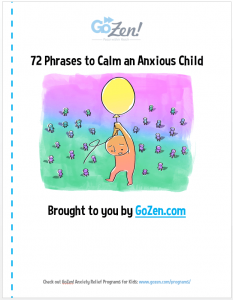
Yes, send me the FREE ebook!
From GoZen.Com
Frequently Asked Questions (FAQs) –
How to calm an anxious child throwing tantrum?
To calm an anxious child showing tantrums, you have to empathize with them, you can even make them feel better with kind words and positive talk.
How to help anxious child at school?
Raising an anxious child can be challenging for parents but the goal should be looking for symptoms and getting necessary therapy for anxious child.
What causes a child to be anxious?
Not being able to cope with stressful situations like illness, death of a loved one, abuse or violence can lead anxiety among children. That’s why helping your anxious child is important.
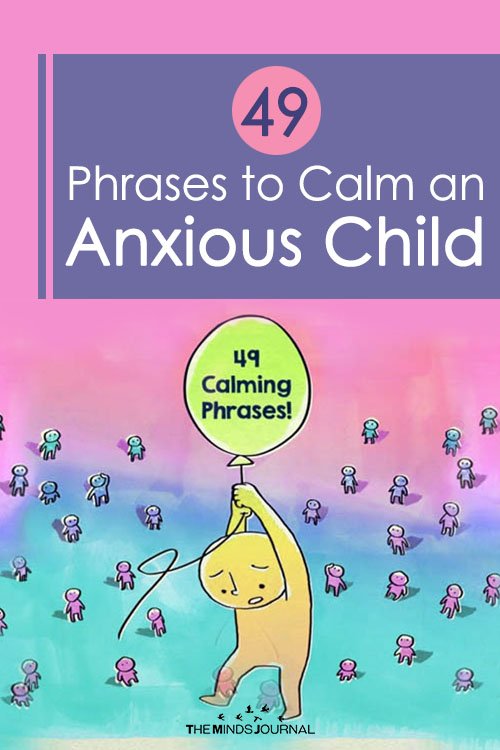
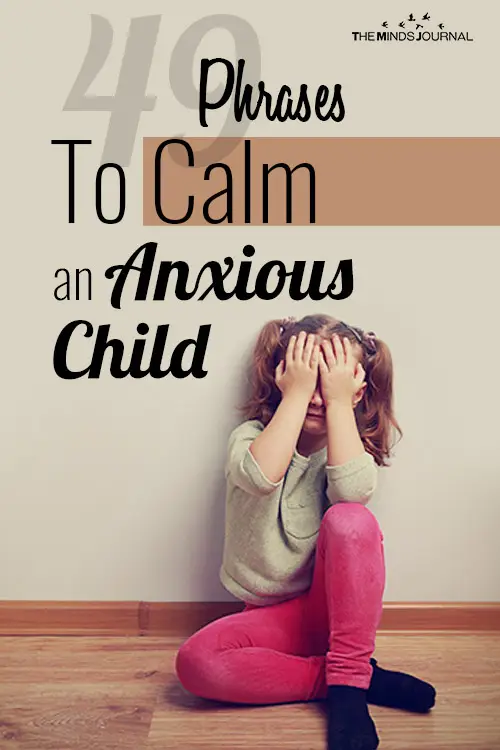
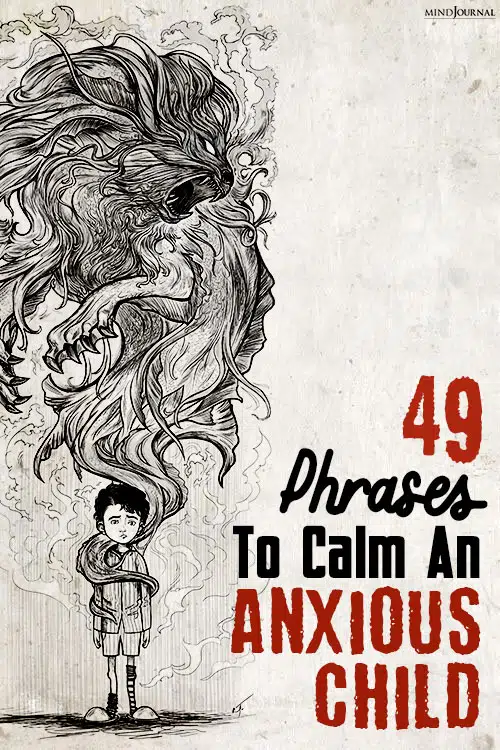
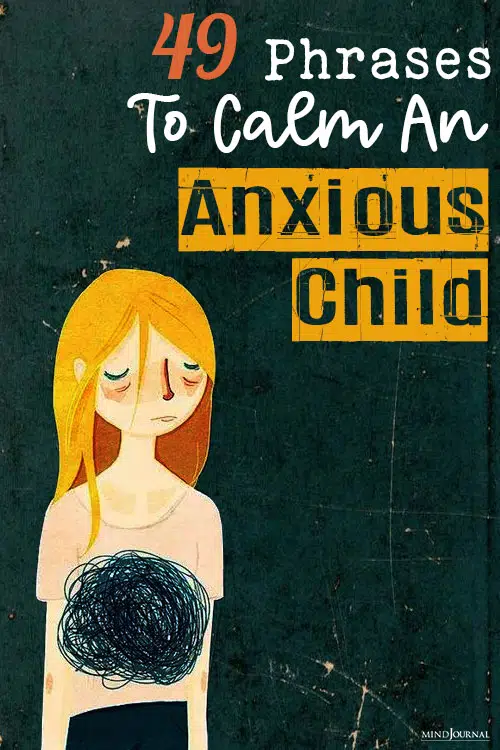
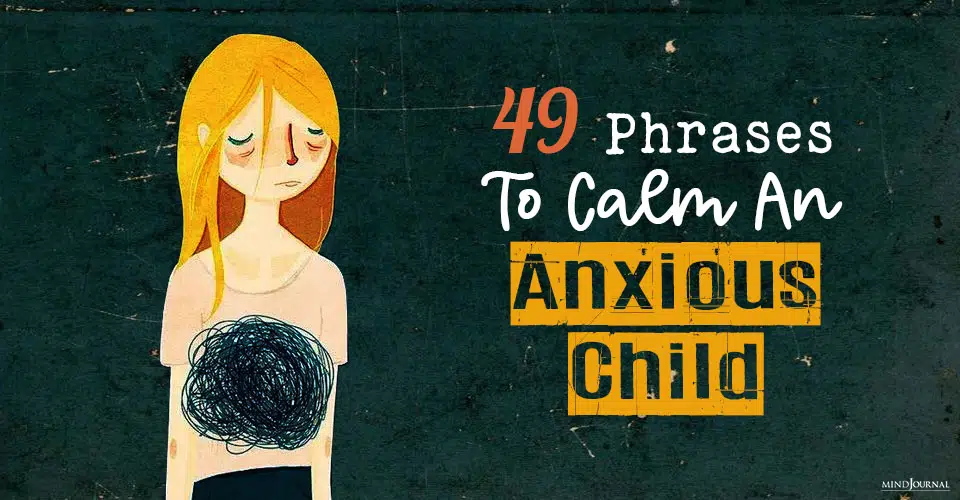







Leave a Reply
You must be logged in to post a comment.